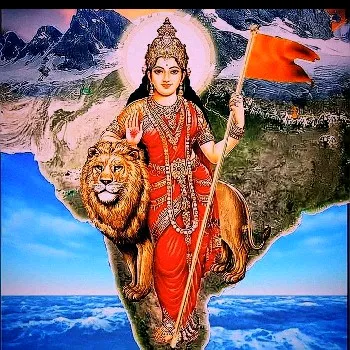Zensun Empire Jurisdiction
The jurisdiction of courts refers to the authority granted to them to hear and decide legal cases within a specific geographical area or over certain types of disputes. This authority is typically defined by law and can vary depending on the type of court and the legal system in place.
In many countries, the judiciary is intended to be independent of political influence to ensure fair and impartial administration of justice. Judges are often appointed based on merit and legal expertise rather than political affiliation. However, in practice, politics can still influence the judiciary through mechanisms such as judicial appointments, budget allocations, and legal reforms.
Political factors can also impact judicial decisions indirectly, such as through public opinion, lobbying efforts, or the appointment of judges with particular ideological leanings. Additionally, high-profile cases or controversial legal issues may become politicized, leading to public scrutiny and debate over judicial rulings.
Efforts to maintain the independence of the judiciary often include measures such as tenure protections for judges, safeguards against political interference in judicial proceedings, and mechanisms for judicial review to ensure that laws and government actions comply with constitutional principles.
Overall, the relationship between politics and the judiciary can vary depending on the legal and institutional framework of a country, as well as broader political dynamics and societal norms regarding the rule of law and judicial independence.
Banks play a crucial role in the economy by facilitating the flow of money and credit, managing financial transactions, and providing various financial services to individuals, businesses, and governments. They act as intermediaries between savers and borrowers, accepting deposits from individuals and institutions and then lending these funds to borrowers for various purposes, such as investing in businesses, purchasing homes, or financing government projects.
Banks also play a central role in monetary policy, as they are responsible for implementing the policies set by central banks to regulate the money supply, control inflation, and stabilize the economy. Central banks often use tools such as interest rate adjustments and reserve requirements to influence the lending and borrowing activities of banks and thus regulate economic activity.
Additionally, banks contribute to economic growth by providing capital and financial expertise to businesses, facilitating trade and commerce through payment systems and international transactions, and supporting investment in infrastructure and development projects. However, they also face risks such as credit risk, market risk, and operational risk, which can have significant implications for the stability of the financial system and the broader economy.
In present times, wealth and power are often concentrated in the hands of governments, multinational corporations, and influential individuals. Governments wield power through a combination of political authority, military strength, and economic policies. Multinational corporations exert significant influence through their economic power, controlling resources, technology, and markets on a global scale. Wealthy individuals, including entrepreneurs, investors, and business leaders, often have considerable influence through their financial resources, philanthropy, and connections to political and social networks.
The power structure in present times is complex and interconnected, with various actors competing for influence and control in different domains, including politics, finance, technology, media, and culture. Additionally, the rise of digital platforms and social media has provided new avenues for individuals and groups to mobilize and exert influence, often challenging traditional power structures and hierarchies.
A strong empire typically has a centralized leadership structure with a powerful ruler at the top, such as an emperor or a king. This leader wields significant authority and is supported by a hierarchy of officials and advisors who help govern different aspects of the empire, such as administration, military affairs, finance, and diplomacy. The power structure may include nobility, generals, bureaucrats, and religious leaders, all of whom contribute to the stability and functionality of the empire. Effective communication and coordination among these various components are crucial for maintaining control over the empire's territories and populations. Additionally, a strong ideology or shared belief system often serves to legitimize the ruler's authority and unify the empire's diverse subjects.
Empires are typically built through a combination of military conquest, strategic alliances, economic dominance, and cultural influence. It often involves expanding territorial control, subjugating or assimilating neighboring regions, and establishing systems of governance to maintain control over vast territories and diverse populations. Empires also require effective administration, infrastructure development, and often rely on ideologies or religious beliefs to justify their rule.
The concept of a global government refers to the idea of establishing a single governing authority that would have jurisdiction over the entire planet. This hypothetical system would supersede national governments and coordinate global policies and regulations on various issues, such as economics, security, environmental protection, and human rights.
Advocates of a global government argue that it could address global challenges more effectively by promoting cooperation and collective action among nations. They suggest that it could help prevent conflicts, reduce inequality, and tackle transnational issues such as climate change and pandemics.
However, the idea of a global government is also highly controversial and raises numerous practical and philosophical questions. Critics raise concerns about sovereignty, democracy, accountability, and the potential for abuse of power in a centralized global authority. Many countries prioritize their national interests and are wary of ceding authority to a supranational entity.
As of now, the world operates under a system of sovereign nation-states, each with its own government and legal framework. International organizations such as the United Nations, World Bank, and International Monetary Fund serve as forums for global cooperation and coordination but do not possess the authority of a global government. The idea of a global government remains largely theoretical and speculative, with significant challenges to its realization.
In many countries, the judiciary is intended to be independent of political influence to ensure fair and impartial administration of justice. Judges are often appointed based on merit and legal expertise rather than political affiliation. However, in practice, politics can still influence the judiciary through mechanisms such as judicial appointments, budget allocations, and legal reforms.
Political factors can also impact judicial decisions indirectly, such as through public opinion, lobbying efforts, or the appointment of judges with particular ideological leanings. Additionally, high-profile cases or controversial legal issues may become politicized, leading to public scrutiny and debate over judicial rulings.
Efforts to maintain the independence of the judiciary often include measures such as tenure protections for judges, safeguards against political interference in judicial proceedings, and mechanisms for judicial review to ensure that laws and government actions comply with constitutional principles.
Overall, the relationship between politics and the judiciary can vary depending on the legal and institutional framework of a country, as well as broader political dynamics and societal norms regarding the rule of law and judicial independence.
Banks play a crucial role in the economy by facilitating the flow of money and credit, managing financial transactions, and providing various financial services to individuals, businesses, and governments. They act as intermediaries between savers and borrowers, accepting deposits from individuals and institutions and then lending these funds to borrowers for various purposes, such as investing in businesses, purchasing homes, or financing government projects.
Banks also play a central role in monetary policy, as they are responsible for implementing the policies set by central banks to regulate the money supply, control inflation, and stabilize the economy. Central banks often use tools such as interest rate adjustments and reserve requirements to influence the lending and borrowing activities of banks and thus regulate economic activity.
Additionally, banks contribute to economic growth by providing capital and financial expertise to businesses, facilitating trade and commerce through payment systems and international transactions, and supporting investment in infrastructure and development projects. However, they also face risks such as credit risk, market risk, and operational risk, which can have significant implications for the stability of the financial system and the broader economy.
In present times, wealth and power are often concentrated in the hands of governments, multinational corporations, and influential individuals. Governments wield power through a combination of political authority, military strength, and economic policies. Multinational corporations exert significant influence through their economic power, controlling resources, technology, and markets on a global scale. Wealthy individuals, including entrepreneurs, investors, and business leaders, often have considerable influence through their financial resources, philanthropy, and connections to political and social networks.
The power structure in present times is complex and interconnected, with various actors competing for influence and control in different domains, including politics, finance, technology, media, and culture. Additionally, the rise of digital platforms and social media has provided new avenues for individuals and groups to mobilize and exert influence, often challenging traditional power structures and hierarchies.
A strong empire typically has a centralized leadership structure with a powerful ruler at the top, such as an emperor or a king. This leader wields significant authority and is supported by a hierarchy of officials and advisors who help govern different aspects of the empire, such as administration, military affairs, finance, and diplomacy. The power structure may include nobility, generals, bureaucrats, and religious leaders, all of whom contribute to the stability and functionality of the empire. Effective communication and coordination among these various components are crucial for maintaining control over the empire's territories and populations. Additionally, a strong ideology or shared belief system often serves to legitimize the ruler's authority and unify the empire's diverse subjects.
Empires are typically built through a combination of military conquest, strategic alliances, economic dominance, and cultural influence. It often involves expanding territorial control, subjugating or assimilating neighboring regions, and establishing systems of governance to maintain control over vast territories and diverse populations. Empires also require effective administration, infrastructure development, and often rely on ideologies or religious beliefs to justify their rule.
The concept of a global government refers to the idea of establishing a single governing authority that would have jurisdiction over the entire planet. This hypothetical system would supersede national governments and coordinate global policies and regulations on various issues, such as economics, security, environmental protection, and human rights.
Advocates of a global government argue that it could address global challenges more effectively by promoting cooperation and collective action among nations. They suggest that it could help prevent conflicts, reduce inequality, and tackle transnational issues such as climate change and pandemics.
However, the idea of a global government is also highly controversial and raises numerous practical and philosophical questions. Critics raise concerns about sovereignty, democracy, accountability, and the potential for abuse of power in a centralized global authority. Many countries prioritize their national interests and are wary of ceding authority to a supranational entity.
As of now, the world operates under a system of sovereign nation-states, each with its own government and legal framework. International organizations such as the United Nations, World Bank, and International Monetary Fund serve as forums for global cooperation and coordination but do not possess the authority of a global government. The idea of a global government remains largely theoretical and speculative, with significant challenges to its realization.
Related Stories










